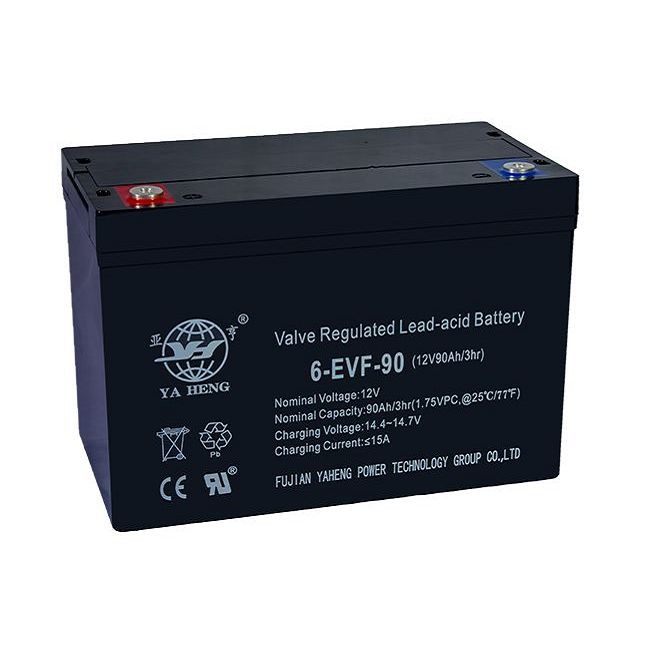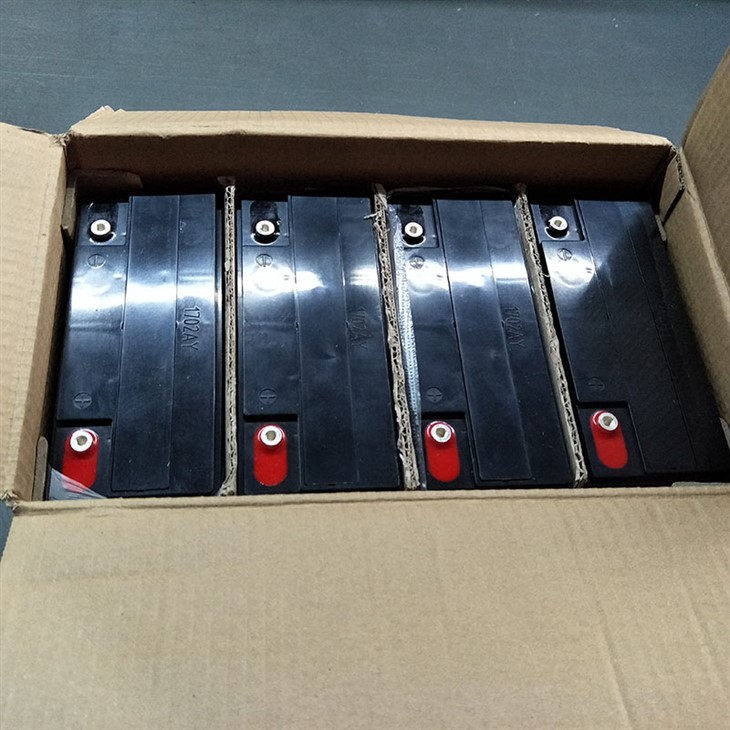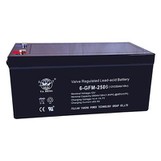Hey there! As a supplier of Wheel Chair Batteries, I often get asked, "How do I know if a wheelchair battery is compatible with my wheelchair?" Well, I'm here to break it down for you in a way that's easy to understand.
First things first, let's talk about the basics. The most important factors to consider when checking battery compatibility are voltage, capacity, and physical dimensions.
Voltage
Voltage is like the power push of the battery. You gotta make sure the voltage of the battery matches what your wheelchair needs. Most wheelchairs run on either 12V or 24V batteries. If you use a battery with a lower voltage than what your wheelchair requires, it won't have enough oomph to power the chair properly. On the other hand, using a battery with a higher voltage can damage your wheelchair's electrical system. It's like trying to fit a square peg in a round hole - it just won't work right.
To find out the correct voltage for your wheelchair, check the user manual. If you don't have the manual handy, you can also look for a label on the wheelchair itself. It usually lists the voltage requirements. And if you're still not sure, you can always give the manufacturer a call. They'll be able to tell you the exact voltage your wheelchair needs.
Capacity
Capacity is all about how long the battery can keep your wheelchair running. It's measured in amp - hours (Ah). A higher capacity battery can store more energy and will generally last longer between charges. But here's the thing - just because a battery has a high capacity doesn't mean it's compatible with your wheelchair.
You need to consider your typical usage. If you only use your wheelchair for short trips around the house, a lower capacity battery might be enough. But if you're out and about for long periods, you'll want a battery with a higher capacity. Again, the user manual or the wheelchair manufacturer can give you an idea of the recommended capacity for your specific model.
Physical Dimensions
This is a no - brainer. The battery has to fit in the battery compartment of your wheelchair. You can't have a battery that's too big or too small. Measure the length, width, and height of the battery compartment in your wheelchair. Then, compare these measurements with the dimensions of the battery you're considering. Some batteries might have different terminal configurations as well. Make sure the terminals on the battery match the connectors in your wheelchair.
Battery Type
There are different types of batteries available for wheelchairs, such as lead - acid, lithium - ion, and nickel - metal hydride. Each type has its own pros and cons.


Lead - acid batteries are the most common. They're relatively inexpensive and can handle high loads. However, they're heavy and need regular maintenance, like checking the water levels.
Lithium - ion batteries are lighter and have a longer lifespan. They also charge faster and don't require as much maintenance. But they're more expensive. If you're looking for a lightweight and long - lasting option, you might want to consider a lithium - ion battery. You can check out Motivation Battery for some great lithium - ion battery options.
Nickel - metal hydride batteries are a middle - ground option. They're lighter than lead - acid batteries and don't have the high cost of lithium - ion batteries. But they have a lower energy density.
Brand and Quality
Not all batteries are created equal. It's important to choose a reputable brand. A good quality battery will be more reliable and last longer. You don't want to end up with a battery that dies after a few months of use. Look for reviews from other wheelchair users. They can give you an idea of which brands are worth buying.
We, as a Wheel Chair Battery supplier, take pride in offering high - quality batteries. We source our batteries from trusted manufacturers and test them thoroughly before selling. We understand that your wheelchair is an important part of your life, and you need a battery that you can count on.
Compatibility with Chargers
Don't forget about the charger. The battery you choose has to be compatible with your wheelchair charger. Different battery types require different charging algorithms. For example, a lithium - ion battery needs a different charger than a lead - acid battery. Using the wrong charger can damage the battery or even pose a safety risk.
If you're replacing your battery, make sure to check if you need to replace the charger as well. And if you're buying a new battery and charger together, make sure they're a matched set.
Cost
Cost is always a factor. While it might be tempting to go for the cheapest option, remember that you get what you pay for. A low - cost battery might not last as long or perform as well as a more expensive one. Consider the long - term costs. A high - quality battery might cost more upfront, but it could save you money in the long run by lasting longer and requiring less maintenance.
Other Considerations
Some wheelchairs have specific battery requirements based on their features. For example, if your wheelchair has a power - reclining function or a lift, it might need a more powerful battery. Make sure to take these features into account when choosing a battery.
Also, think about the warranty. A good warranty gives you peace of mind. It means that if something goes wrong with the battery, you can get it replaced or repaired without having to spend a fortune.
In conclusion, checking the compatibility of a wheelchair battery is a multi - step process. You need to consider voltage, capacity, physical dimensions, battery type, brand, charger compatibility, cost, and other features of your wheelchair. If you're still not sure, don't hesitate to reach out to us. We're here to help you find the perfect battery for your wheelchair.
If you're in the market for a new wheelchair battery, whether it's for an Electric Motorcycle Battery or an Electric Trolley Battery application, we can assist you. We have a wide range of batteries to choose from, and we can help you make the right decision based on your needs.
Contact us today to start the procurement process. We're ready to have a detailed discussion with you and find the best battery solution for your wheelchair.
References
- Wheelchair user manuals
- Battery manufacturer specifications
- Industry research on wheelchair battery technologies




